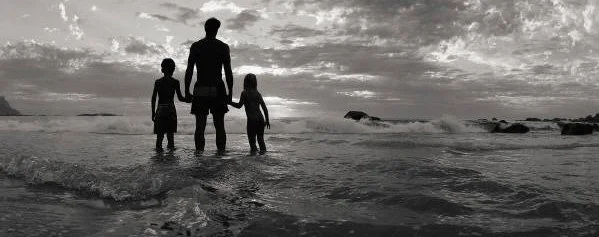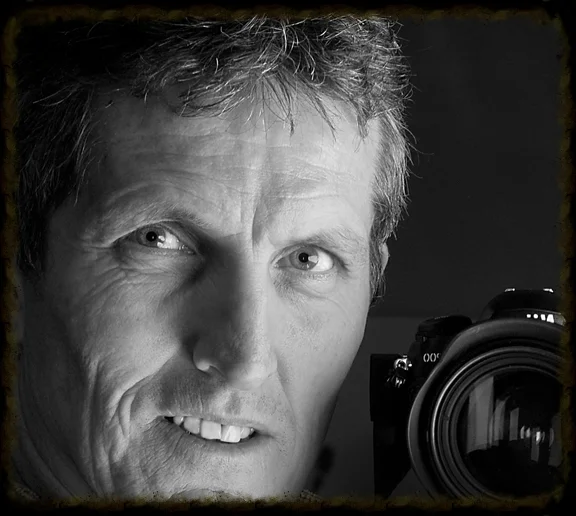So, Steve, what will you tell your children?
Open spaces affect our capacity to reflect and imagine.
The questions we ask ourselves as we look across a wide seascape or out from a high peak seem to land differently.
We see differently, our perspective is enriched, our place the wider ecology is more evident and we are drawn to wonder about our purpose and identity. Who are we in these moments? What could be the most meaningful 'dent' each of us might make in the universe? How can we bring the capabilities that we had worked so hard to gain into the service of others? And how would we sustain ourselves and others as we turned imagination and possibility into reality. Looking back, I can see that I've chased these questions and changed my life around a few times. Each time, it has felt like I was pursuing an almost impossible dream and, each time, I was strongly advised against following my passion. The changes worked out well enough but now, in the second phase of my life, it feels as though there is more at stake when I consider significant personal change: more to risk but greater power and resources to deploy. Yet, as the theologian, Richard Rohr points out,
“Most of us in the first half of life suspect that all is not fully working, and we are probably right!”
Looking back, I've always been fascinated by how we see the world.
At fourteen, I proudly announced to my school careers teacher that I wanted to be a freelance photo-journalist, and was immediately sent on work experience at a local engineering factory so that I could get a taste of the real world. I remember feeling rather scared by the prospect of a life on the foundry floor, and a question emerged that has lived with me ever since; how was it that the guys smelting metal, peering into furnaces, fashioning molten ingots or machining the metal blades of enormous turbines were evidently paid so much less than their cuff-linked counterparts in the warm offices that overlooked the enormous grey metal-working sheds?
I guess it wasn't the first time that a question of social justice had presented itself, and it wouldn't be the last.
Not to be deterred by careers advice, I decided that my intention to work with imagery was serious and I clawed my way onto an undergraduate photography course in London. I started freelancing around the city, working on big accounts with some of the 'names' in the business and used my college time to become a specialist in some of the technologies of the day. It was mostly great fun and I was slowly drawn into the advertising, editorial and fashion media machine. In those days, the glamour, gloss and money of the work obscured my feelings of an industry that was largely sponsored by consumerism, exploitation and dishonesty. I ignored the my nagging sense of conflict for as long as I could, focusing instead on my aesthetic engagement with the imagery and the excitement of a nomadic, craft-based lifestyle that felt edgy and progressive.
I like to follow my own path.
Though my work as a photographer seemed to be on the edge of breaking into the big time, I felt I needed to find a more significant challenge in my life. Once again, colleagues and clients all counseled against my next shift; why would I throw such a promising career away? Chasing possibly the biggest physical and mental challenge that I was able to imagine, I decided to chance my luck in a completely different environment and joined the military as a fast-jet fighter pilot. In a Europe that was still negotiating the Cold War, it felt like an important and worthwhile role.
In the close confines of the fast-jet cockpit, I learned to obsess over the 'picture'; the image of events shared by military pilots that reflects their awareness of what is happening around them in fast moving, complex air engagements. A keen, accurate and shared sense of the 'picture' was fundamental to our decision making and exponentially increased our effectiveness. Research told us that pilots with good situational awareness weren't just marginally better than their colleagues, in fact they were ten times more effective than those who lack clarity in their shared efforts.
Freedom, creativity and learning have always been high on my agenda.
The life of a fighter pilot is fabulously privileged. The 'work' takes place among small groups of close colleagues, each bringing exceptional levels of skill, and each holding a clear sense of motivation and engagement with the task. For me, success in this world meant promotion and a move into the bureaucracy of command where the stifling constraints of the military organizational structure soon began to wear on me. However, with the benefit of an MBA, the Ashridge Masters in Organisational Consulting (AMOC) and my heart in my mouth, I decided to go back to the entrepreneurial, freelance world. (Do I need to mention that, once again, my friends, family and colleagues thought that anyone with young children and a new mortgage would be crazy to give up a secure, well-paid, 'job for life'?)
I set up my own consulting practice, working with imagery and dialogue as my key methodologies. I had enough money to last a year and if I burned my way through it all then I would have to give up on my agenda and simply get a job. But, more through luck than judgement, my consulting offer seemed to work out and, a year later, there was still some cash in the bank. So I continued my experiment and signed up for the Ashridge Doctorate in Organisational Change (ADOC), with the aim of both continuing to learn and to create new ways of thinking about how we each see the world. My relationship with Ashridge endured and I found myself in my dream job, the Academic Director of doctoral programme, as well as working across a range of consulting and action research interventions.
So, what's the vision?
We find ourselves in a world where we face some enormously complex and resilient problems. Issues of climate change, economic stability and migration, social justice, equality and sustainability appear to be very resistant to our current ways of thinking and working together. My 'work' has been through a few evolutions as I have developed my own perspectives on how we can unlock some of our most demanding problems and with imagery and vision, and I offer support to those of us trying to find ways to bring their visions of a better world into life. Whether I am working with doctoral students forging new knowledge in one of the world's biggest business schools, consulting to the board and managers innovating in high risk start-up operation, or in one-to-one coaching conversations with clients who are bringing bright new ideas to life, my vision is support you in the genesis of ethical, sustainable, just and creative visions that enable you to build a foundation for positive, helpful change.
Dr. Steve Marshall

